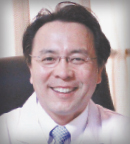The next-generation inhibitor of Bruton’s tyrosine kinase (BTK) may be effective in mantle cell lymphoma for patients previously treated with an older BTK inhibitor, according to results from the phase I/II BRUIN trial. These findings were reported at the 2021 American Society of Hematology (ASH) Annual Meeting & Exposition by Michael Wang, MD, of The University of Texas MD Anderson Cancer Center, Houston.1
“Pirtobrutinib demonstrated promising efficacy in patients with mantle cell lymphoma previously treated with BTK inhibitors, a population with extremely poor outcomes. The response rate was 51%, and 25% were complete responses. Most patients enjoyed a tumor reduction. And, of 618 patients [in the overall study population], just 6, or 1%, permanently discontinued pirtobrutinib because of treatment-emergent adverse events. This is a really impressive safety profile,” Dr. Wang said.

Of 618 patients [in the overall study population], just 6, or 1%, permanently discontinued pirtobrutinib because of treatment-emergent adverse events. This is a really impressive safety profile.— Michael Wang, MD
Tweet this quote
About Pirtobrutinib
Pirtobrutinib (formerly known as LOXO-305) is a highly selective, noncovalent (reversible) BTK inhibitor. With currently available covalent BTK inhibitors, which irreversibly inhibit BTK, patients develop acquired resistance, most commonly through BTK C481 mutations and from parallel signal pathway dysregulations.
Pirtobrutinib was designed to reversibly bind BTK, deliver consistently high target coverage regardless of BTK turnover rate, preserve activity in the presence of the C481 acquired resistance mutations, and avoid off-target kinases.
About the BRUIN Trial
A total of 618 patients with advanced B-cell malignancies were enrolled in the phase I/II trial. The current analysis focused on the 134 with relapsed or refractory mantle cell lymphoma, with 111 patients included in the efficacy analysis. Of these patients, 100 had received a prior BTK inhibitor and 11 had not. Almost all patients had also received anti-CD20 antibodies and chemotherapy, and 22% had received a stem cell transplant.
Pirtobrutinib was administered orally in 28-day cycles, at doses of 25 to 300 mg daily in phase I and 200 mg daily in phase II.
The response rate in the 100 BTK inhibitor–pretreated patients was 51%, with 25% being complete responses and 16% achieving stable disease. In the small BTK inhibitor–naive cohort of 11 patients, 82% responded, with 18% being complete responses and 9% (1 patient) achieving stable disease. At a median follow-up of 8.1 months, the median duration of response was 18 months, and 60% of the responses were ongoing, Dr. Wang reported.
Safety Profile
Treatment-emergent adverse events grade ≥ 3 were rare with pirtobrutinib and mainly limited to neutropenia (8%); all others occurred in less than 2% of patients, including atrial fibrillation (< 1%). Dr. Wang said the drug’s side-effect profile was so mild that some patients asked whether they were in the placebo group (there was none in this study). Dr. Wang did caution that the follow-up time for this study is relatively short; more follow-up time is needed on toxicity updates.
“The favorable safety and tolerability are consistent with the design of pirtobrutinib as a highly selective and noncovalent (reversible) BTK inhibitor,” he said.
Expert Point of View
M. Yair Levy, MD, a hematologist and medical oncologist at Texas Oncology–Baylor Charles A. Sammons Cancer Center in Dallas, offered his thoughts on the phase I/II BRUIN study1 for The ASCO Post. He commented that the results create more options for patients with relapsed or refractory mantle cell lymphoma.

M. Yair Levy, MD
“Although the optimal induction regimen for mantle cell lymphoma is still hotly debated, it usually consists of a combination of chemoimmunotherapy, sometimes followed by high-dose chemotherapy and autologous stem cell rescue, or a maintenance therapy,” Dr. Levy noted. “In most cases, these upfront therapies do not lead to a cure. The response rate and duration of response seen in the relapsed setting with chemoimmunotherapy were often disappointing. Thankfully, other options have since been approved.”
Treatment Background in Mantle Cell Lymphoma
The first subsequent options were bortezomib and lenalidomide, which improved outcomes over chemoimmunotherapy but still were associated with low response rates and duration of response. Following these agents, Bruton’s tyrosine kinase (BTK) inhibitors proved more effective and became the new standard of care. Since the approval of ibrutinib, two additional covalent BTK inhibitors have been approved in that space, offering modest improvements in efficacy and tolerability, Dr. Levy said.
“Although the BTK inhibitors offered impressive clinical benefit in relapsed mantle cell lymphoma, they also did not lead to a cure. The prognosis for patients who experience disease progression on these agents has been dismal,” he said. “We have also not seen any significant clinical benefit by changing one covalent BTK inhibitor for another.”
A New Strategy Emerges but Clinical Questions Remain
“The BRUIN trial has demonstrated that using a noncovalent BTK inhibitor, pirtobrutinib, after disease progression on a covalent BTK inhibitor is an effective strategy,” Dr. Levy commented. The response rate was 51%, with 25% being complete responses and 16% achieving stable disease. Of note, he added, these responses occurred in patients previously treated with a covalent BTK inhibitor. In addition, pirtobrutinib was extremely well tolerated, with very few patients experiencing high-grade adverse events.
“The benefit of this drug in relapsed or refractory mantle cell lymphoma is clear; however, there are still many clinical questions to answer,” Dr. Levy concluded. “Most novel agents are studied as monotherapies in late-line settings, but these therapies are then often studied in earlier lines and in combination with other effective agents. Clearly, more trials will be needed to answer these questions.”
“Currently, pirtobrutinib remains an attractive option in the relapsed or refractory mantle cell lymphoma space, particularly after failure of a covalent inhibitor. We can also consider this therapy in the setting of a bridge to chimeric antigen receptor T-cell therapy and, given its favorable tolerability profile, in the setting of covalent BTK inhibitor intolerance,” Dr. Levy said.
REFERENCE
1. Wang M, Shah NN, Alencar AJ, et al: Pirtobrutinib, a next generation, highly selective, non-covalent BTK inhibitor in previously treated mantle cell lymphoma: Updated results from the phase 1/2 BRUIN study. 2021 ASH Annual Meeting & Exposition. Abstract 381. Presented December 12, 2021.
DISCLOSURE: Dr. Wang has served as a consultant for AstraZeneca, Bayer Healthcare, BeiGene, BioInvent, CSTone, DTRM Biopharma (Cayman) Limited, Epizyme, Genentech, InnoCare, Janssen, Juno Therapeutics, Kite Pharma, Lilly, Loxo Oncology, Miltenyi Biomedicine GmbH, Oncternal, Pharmacyclics, and VelosBio; has received research funding from Acerta Pharma, AstraZeneca, BeiGene, BioInvent, Celgene, Genentech, Genmab, Innocare, Janssen, Juno Therapeutics, Kite Pharma, Lilly, Loxo Oncology, Molecular Templates, Oncternal, Pharmacyclics, VelosBio, and Vincerx; and has received honoraria from Acerta Pharma, Anticancer Association, AstraZeneca, BeiGene, BGICS, BioInvent, CAHON, Chinese Medical Association, Clinical Care Options, Dava Oncology, Eastern Virginia Medical School, Epizyme, Hebei Cancer Prevention Federation, Imedex, Janssen, Kite Pharma, Leukemia & Lymphoma Society, LLC TS Oncology, Medscape, Miltenyi Biomedicine GmbH, Moffit Cancer Center, Mumbai Hematology Group, Newbridge Pharmaceuticals, OMI, OncLive, Pharmacyclics, Physicians Education Resources (PER), Practice Point Communications (PPC), Scripps, and The First Afflicted Hospital of Zhejiang University. Dr. Levy has served as a consultant or promotional speaker for AbbVie, Amgen, Bristol Myers Squibb, Janssen Pharmaceuticals, Karyopharm, MorphoSys, Seattle Genetics, Takeda, AstraZeneca, BeiGene, Gilead Sciences, Jazz Pharmaceuticals, TG Therapeutics, Dova, Epizyme, GSK, and Novartis.

